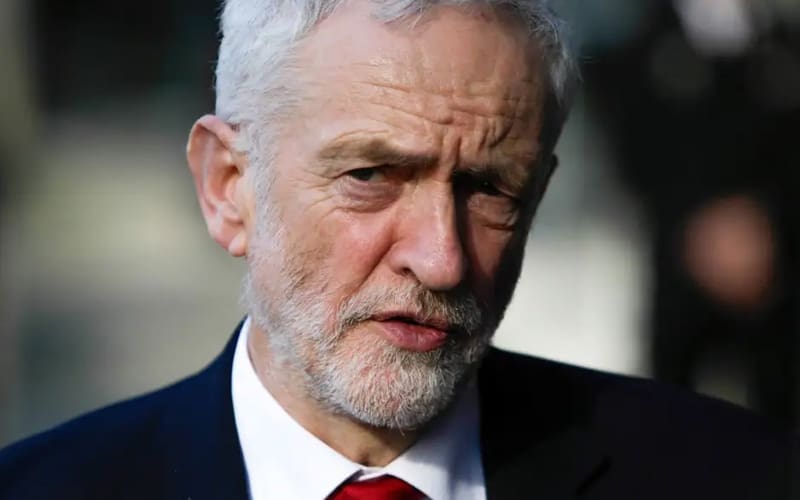LONDON: Britain’s most senior rabbi on Tuesday suggested Labour leader Jeremy Corbyn’s handling of anti-Semitism allegations made him “unfit for high office”, in an unprecedented intervention ahead of next month’s election.
Chief Rabbi Ephraim Mirvis claimed “a new poison” had taken hold of the party, which had been “sanctioned from the very top” and left British Jews justifiably “gripped by anxiety” before the December 12 poll.
The scathing criticism overshadowed Labour’s launch of a “race and faith” manifesto setting out policies to improve social justice, human rights — and promote racial equality.
But the policy announcement was overshadowed by Mirvis, who described Corbyn’s claim to have dealt forcefully with all accusations of anti-Semitism as “mendacious fiction”.
In a scathing comment piece in The Times, he said Corbyn was responsible for “a failure of leadership” which was “incompatible with the British values of which we are so proud.
“How complicit in prejudice would a leader of Her Majesty’s opposition have to be to be considered unfit for office?”
The chief rabbi added it was not his place to tell anyone who to support next month but he advised “every person to vote with their conscience”.
In response, Labour said its leader was a “lifelong campaigner against anti-Semitism” who had “made absolutely clear it has no place in our party and society”.
“A Labour government will guarantee the security of the Jewish community, defend and support the Jewish way of life, and combat rising anti-Semitism in our country and across Europe,” it added.
– ‘Ashamed’ –
The row is the latest in a long-running series of allegations about widespread anti-Semitism among members since Corbyn — a lifelong supporter of Palestinian causes — took over as leader in 2015.
A number of MPs have since quit the party, accusing the veteran socialist of allowing the problem to flourish in its ranks and doing little or nothing to tackle it.
Two former Labour lawmakers spoke out Tuesday in support of the chief rabbi’s condemnation.
“It is heartbreaking to see a party so many of us joined to fight racism and which had such a proud record of fighting for equality reduced to this,” said Ian Austin, who left Labour in February.
“Corbyn & co should be so ashamed,” he wrote on Twitter.
Meanwhile Archbishop of Canterbury Justin Welby, the highest ranking Anglican cleric, said intervention by Mirvis “ought to alert us to the deep sense of insecurity and fear felt by many British Jews.
“The chief rabbi’s statement provides all of us with the opportunity to ensure our words and actions properly reflect our commitments to mutual flourishing and inclusion, for the common good,” he added.
Last week, Welby and his deputy, Archbishop of York John Sentamu, warned candidates standing for election to reject hate speech during the campaign.
– Deep divisions –
Labour has been dogged by the anti-Semitism controversy this year in particular, with nine MPs quitting the party in February over the leadership’s handling of the issue.
A 2016 report by the former head of civil rights group Liberty, Shami Chakrabarti, concluded the party was “not overrun by anti-Semitism”.
But some members have since said it is. The Equality and Human Rights Commission has now launched a formal inquiry into whether Labour “unlawfully discriminated against, harassed or victimised people because they are Jewish”.
The row has exposed deep divisions between Labour members denouncing Corbyn’s complacency, and his hard left supporters who defend him to the hilt.
Corbyn has repeatedly insisted he is not anti-Semitic and has pledged to “root out” the problem, which he recognises has “occurred in pockets” within the party.
But critics have castigated him for failing to deliver on that pledge, claiming thousands of complaints of alleged anti-Semitism remain outstanding.
At Tuesday’s planned race and faith policy launch, the party had hoped to move beyond the damaging topic with a set of wide-ranging proposals.
They include teaching children about colonialism, injustice and the role of the British Empire as part of the national curriculum, and tackling discrimination by forcing businesses to report on the pay gap faced by staff from minority ethnic groups.

